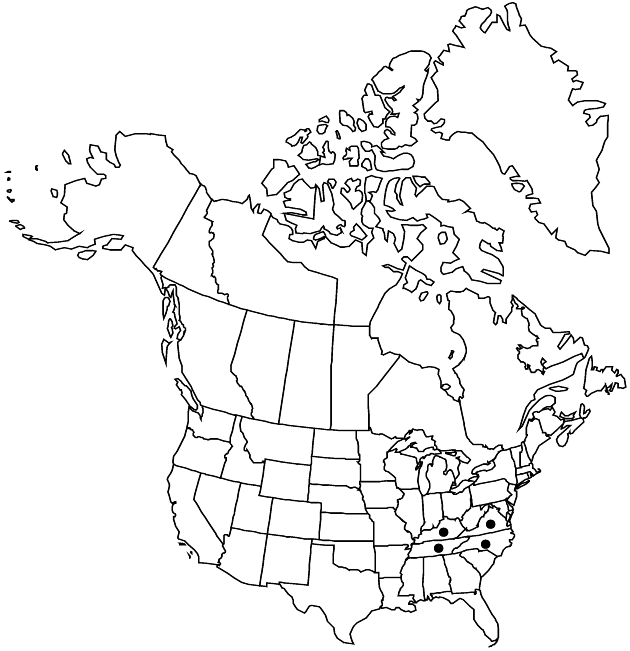Difference between revisions of "Eutrochium steelei"
Sida 21: 902. 2004.
FNA>Volume Importer |
FNA>Volume Importer |
(No difference)
| |
Revision as of 18:46, 24 September 2019
Plants 60–200 cm. Stems usually greenish purple, sometimes evenly purplish, solid, usually glandular-pubescent throughout, sometimes densely puberulent and sparingly glandular. Leaves mostly in 3s–4s; petioles (0.7–)1.3–2.8(–3.6) mm, glabrate to densely ciliate; blades pinnately veined, lance-ovate or ovate to deltate-ovate, mostly 7–30 × 2.5–18 cm, relatively firm, bases abruptly or gradually tapered, margins sharply serrate, abaxial faces ± glandular-pubescent and sparsely hirsute (at least midribs and main veins), adaxial faces scabrous-hirsute, glabrescent. Heads in loose, convex, compound corymbiform arrays. Involucres often purplish, 6.5–9 × 3.5–5 mm. Phyllaries mostly glabrous, outer sometimes hairy on midveins. Florets (5–)6–9(–10); corollas usually pale pinkish or purplish, 4.5–7 mm. Cypselae 3–4.5 mm. 2n = 20.
Phenology: Flowering late summer–early fall.
Habitat: Gravelly embankments, open woods, thickets
Elevation: 700–1500 m
Distribution

Ky., N.C., Tenn., Va.
Discussion
Eutrochium steelei is known from the Blue Ridge Province of western North Carolina and eastern Tennessee, the Ridge and Valley Province of southwestern Virginia, and the Appalachian Plateaus Province of eastern Kentucky.
Selected References
None.